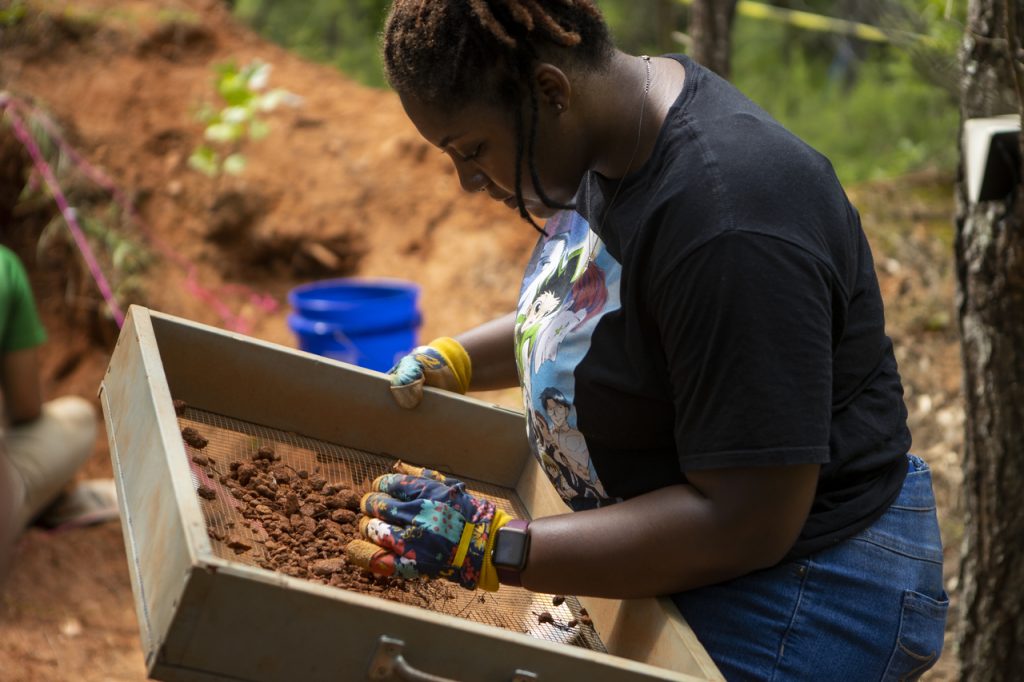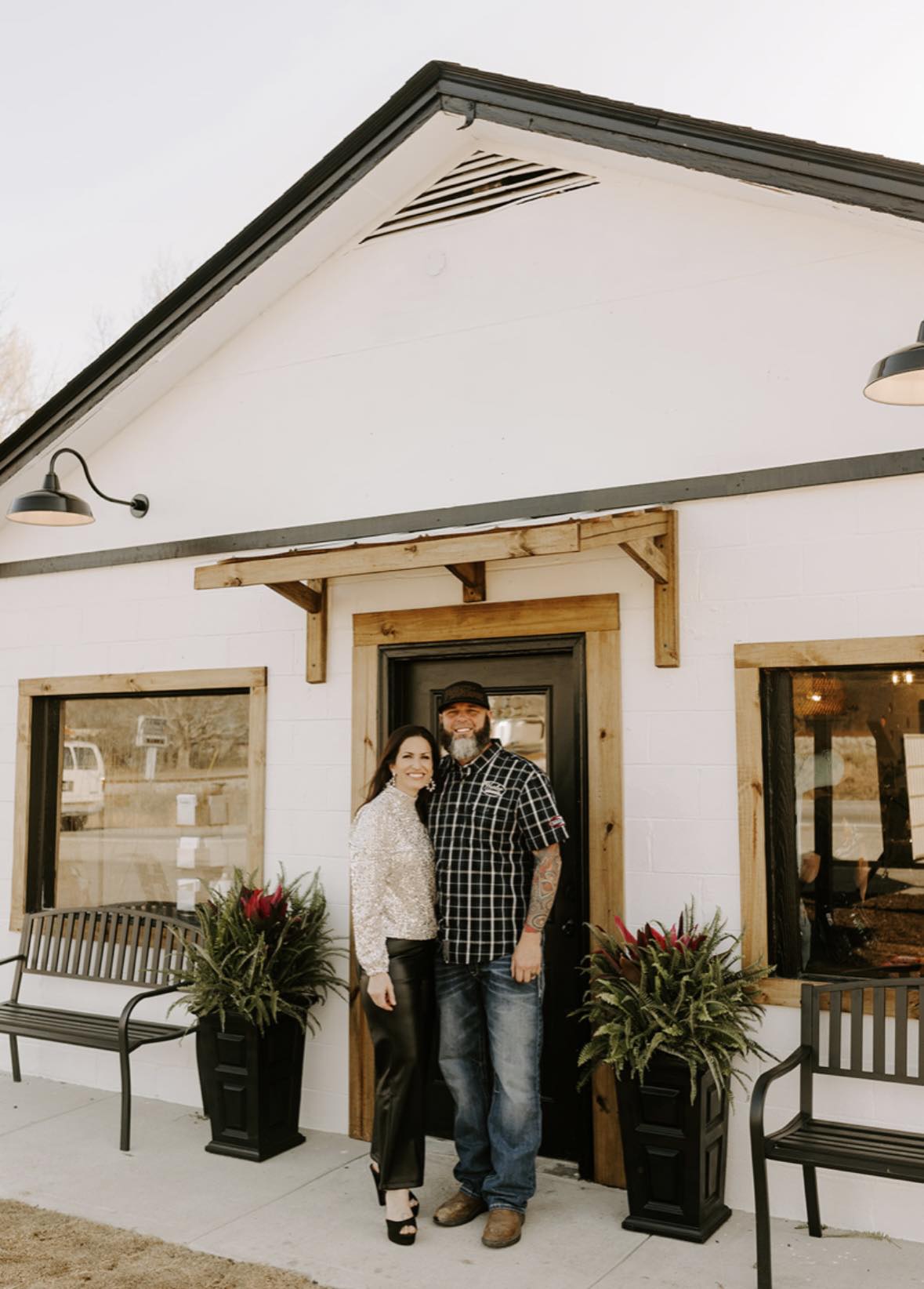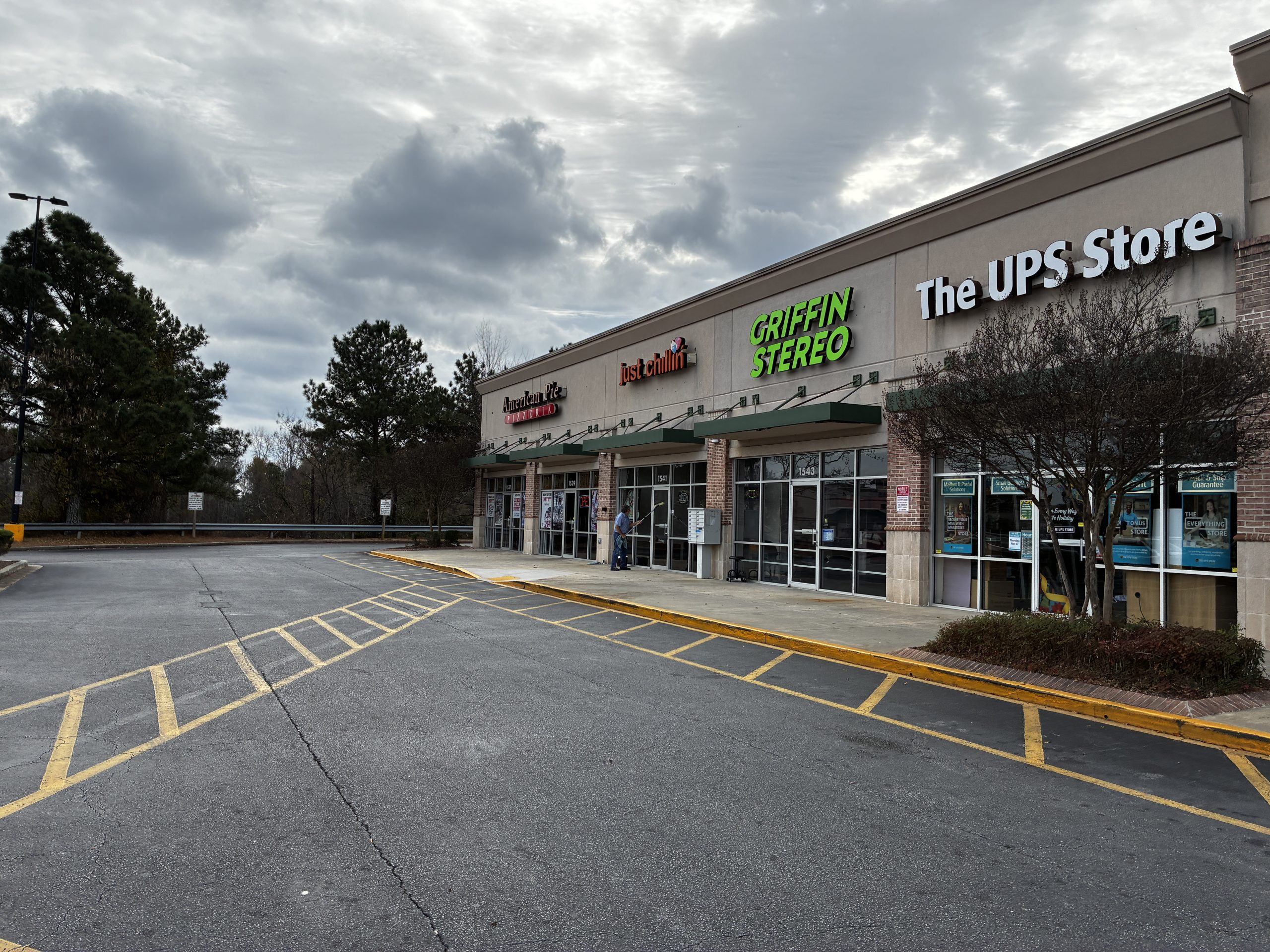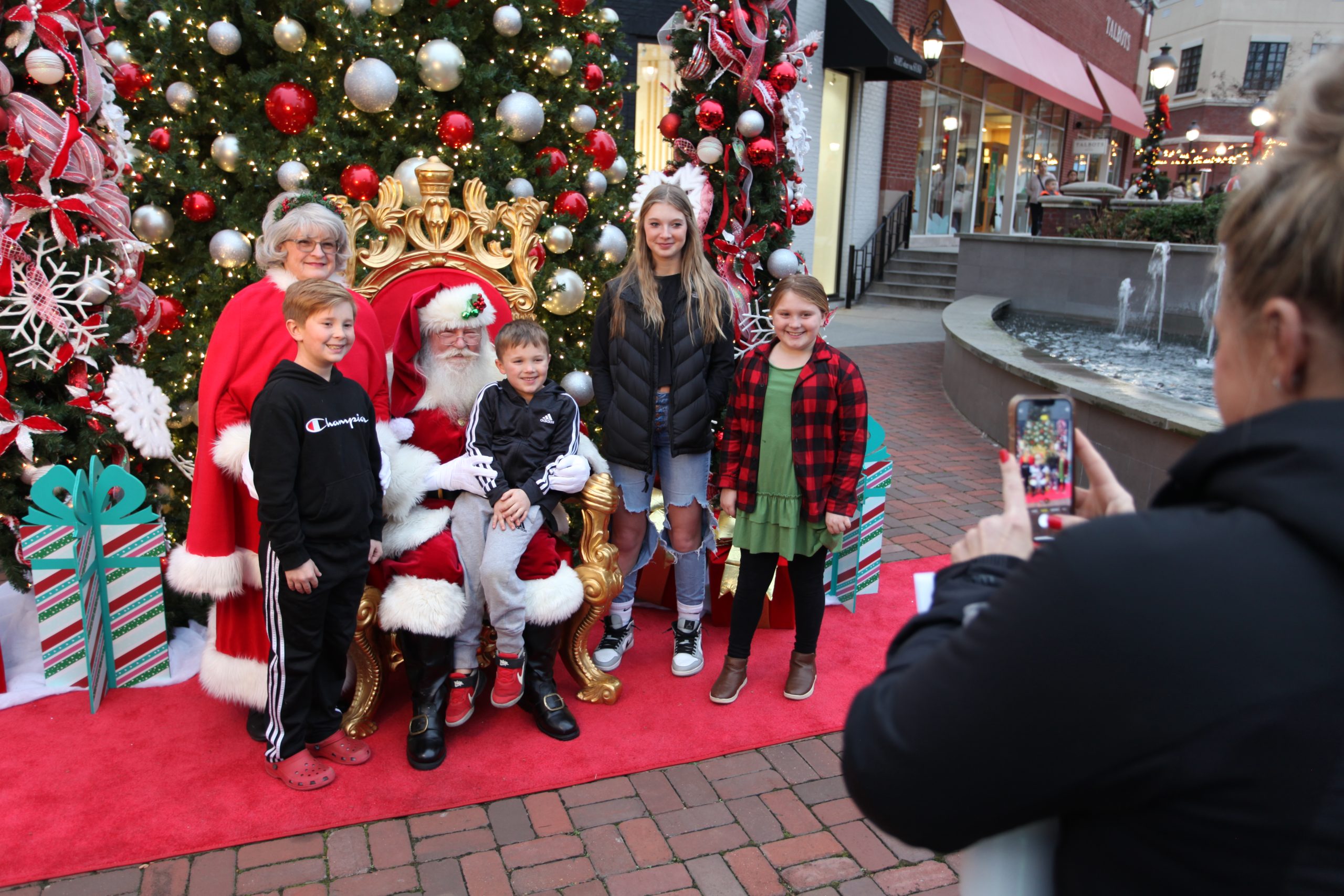Anthropology is often seen as one of the least-known majors, its contributions to understanding human history and society are profound and far-reaching. At the University of West Georgia, one of the courses that serves as a significant influence for these students is the Pig Dig Crime Scene – a course that focuses on the field methods of forensic archaeology and biological anthropology.
Dr. Corey Maggiano, assistant professor of anthropology, was inspired to create the class based on his own experiences participating in simulated crime scenes during his time in college.
“I took a class that had a simulated crime scene with real pig remains out in the woods, with local law enforcement cooperation,” he said. “We got to hear all of their stories about what it’s like to work at a crime scene, and we got to do our own excavations.”
Once Maggiano’s idea came to life, he was able to influence students on creating projects based on the various applications of forensic science. In the class, the student’s project is focused on the analysis of forensic archaeology and biological anthropology, with methods including removing skulls from the dig and documenting their findings.
Haleigh Villalba ’22, who is currently finishing her master’s thesis at Boston University, stated that she was heavily involved with UWG’s Biological and Forensic Anthropology Lab (BAFAL) as an undergrad. This experience led to her becoming part of the first-ever volunteer group of the Pig Dig course in 2022.
“My group focused on designing a research project using different types of trauma in hopes that the excavating class would be able to analyze it in the future,” Villalba stated. “Although I didn’t have the traditional experience with Pig Dig, I am very familiar with the course and the students’ impression of it.”
The first pig dig course was so successful that former volunteers were able to make a tradition of joining current volunteers on crime scene projects, resulting in a multigenerational project. Current anthropology student Taylor Keese was amazed that the course introduced more tasks than digging up a pig.
“During the course, we had to bag and tag evidence that was thrown about the field that we were using as our crime scene,” she stated. “When finding that evidence, we did plenty of line searches.”
Along with the coursework, Maggiano notes that the course functions as an experiential learning lab, and its core values focus on the basis of forensic work such as evidence collection and project design. From learning how to use osteometric measuring tools to surveying equipment, these tasks will serve as a much-needed benefit for each student’s future career.
“We’re focused on sort of a forensic example, but that example helps them with biological archaeology and anthropology,” said Maggiano, who also serves as BAFAL director. “It helps them [gain] a whole range of skill sets that they may need, whether they’re going into applied fields or academic fields in anthropology.”
Since the course is only offered during the summer, Keese recounted how adaptive the class environment can get, which was overwhelming to say the least.
“The most challenging point during the course was trying to work fast but efficiently,” she recalled. “Trying to make sure we didn’t lose time on tasks that didn’t mean a whole lot in the grand scheme of things.”
One thing that is covered heavily during Pig Dig is the multitude of sensitive topics. Not only are the students working around human remains, but they are also discussing topics such as death, violence and bereaved families. Villalba remembered how challenging it was to listen to the lectures and how students are expected to brace themselves on witnessing sensitive nature.
“The mock crime scenes are staged with real pig cadavers, which expose students to sights and odors that they may have never experienced before,” she stated. “It is very rare for a university to be able to provide undergraduate students with this kind of hands-on activity, and it is truly an opportunity to see if this kind of career is something you genuinely want to pursue.”
Although the anthropology program doesn’t have a huge enrollment of students, courses like the Pig Dig secures hope for the potential success of future go-getters. Especially with today’s generation, gaining real-world experience will not only look good on a resume, but prepare them for what to expect following graduation. Maggiano is a full believer in this and is grateful to see students determined in what they want to do, while challenging themselves at the same time.
“I learned how to push past any kind of challenges there, and to bring other people to work as a team,” Maggiano said. “It doesn’t matter if they’re going to graduate school or if they’re moving into the workforce, it makes a big difference.”








